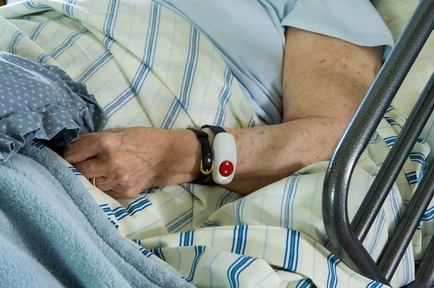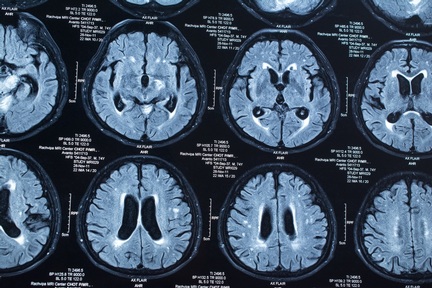Charity boss: More money for dementia care could stop £400m 'badly spent' on avoidable hospital visits
The chief executive of the Alzheimer’s Society wants £2.4 billion made available for dementia care to stop £400 million a year being “badly spent” by the NHS on “avoidable hospital admissions”.

People with dementia occupy at least 25 per cent of hospital beds at any one time and are the biggest users of adult social care services.
Up to 70 per cent of care home residents have dementia and over 60 per cent of people receiving home care have the condition.
Speaking at this year’s Alzheimer’s Show (7-8 June) in London, Jeremy Hughes called it a "travesty" that families are spending their own money to get help for loved ones with dementia and urged the government to create a Dementia Care Fund now.
Over the last five years, there has been a 70 per cent increase of avoidable A&E admissions for people with dementia, costing between £350-400 million a year.
In 2017, the charity’s ‘Fix Dementia Care’ campaign found 50,000 people with dementia were rushed to A&E, when proper care in the community could have prevented the emergencies.
Mr Hughes said he has “spoken to all parties” about the extra money needed but “not spoken to the Brexit Party yet”.
Those attending the two-day Alzheimer’s Show in London also heard how funding by dementia charities has led to research into new dementia drug therapies.

Some £30 million has been invested over five years to create the Drug Discovery Alliance (DDA).
It brings together academics from University College London, University of Oxford and University of Cambridge and pharmaceutical companies with support from Alzheimer’s Research UK and the government.
Dr Sara Imarisio, head of strategic initiatives at Alzheimer’s Research UK, said: “There are 23 potential new drugs being developed by the DDA.
“One of the problems is, we’ve been trying to treat it [dementia] too late. We could develop drug therapy at early stages [of dementia].”
Gavin Terry, head of policy at Alzheimer’s Society, told conference delegates: “Early diagnosis is the key to getting good support.”
’Art has got to play a more significant part in dementia research’
During a Q&A panel discussion at the Alzheimer’s Show, Dr Imarisio said: “We should do more research on the use of arts in dementia to see what is happening in the brain."
Former headteacher Keith Oliver, who has dementia, agreed. Mr Oliver said: “Art has got to play a more significant part in dementia research for people at all stages of their journey. “I get stimulation, interaction with other people, the ability to connect with all the things dementia robs you of. Art fills the void."
Alison Murray, the Care Quality Commission’s (CQC) head of inspection and dementia said: “I have a feeling there is a correlation between an outstanding rating and use of music for dementia.”
Alzheimer’s Society’s chief executive Jeremy Hughes added: “It seems a long haul to make a difference but there is hope. We know a lot more about prevention to avoid all our risk of dementia progressing.”
Latest News
 29-Jul-24
Dementia Bus gives carehome.co.uk staff insight into life with dementia
29-Jul-24
Dementia Bus gives carehome.co.uk staff insight into life with dementia
 01-Mar-24
Find out the top care homes in 2024
01-Mar-24
Find out the top care homes in 2024
 21-Mar-23
UK's top care homes in 2023 revealed
21-Mar-23
UK's top care homes in 2023 revealed
 03-Jan-23
carehome.co.uk launches free care helpline
03-Jan-23
carehome.co.uk launches free care helpline
 13-Dec-22
5 mins with Emily Whitehurst, chief operating officer for Constantia Healthcare
13-Dec-22
5 mins with Emily Whitehurst, chief operating officer for Constantia Healthcare